Similar titles: Wicazo Sa Review
-
 Cultural Materialism
On Raymond Williams
Christopher Prendergast, Editor
1995 Spring
Cultural Materialism
On Raymond Williams
Christopher Prendergast, Editor
1995 Spring
- Widely regarded as one of the founding figures of international cultural studies, Raymond Williams is of seminal importance in rethinking the idea of culture. In tribute to his legacy, this edited volume is devoted to his theories of cultural materialism and is the most substantial and wide-ranging collection of essays on his work to be offered since his death in 1988. "Raymond Williams was the last of the great European male revolutionary socialist intellectuals born before the end of the age of Europe (1492-1945)." --Cornel West Contributors include Stanley Aronowitz, John Brenkman, Peter de Bolla, Catherine Gallagher, Stephen Heath, John Higgins, Peter Hitchcock, Cora Kaplan, David Lloyd, Robert Miklitsch, Michael Moriarty, Morag Shiach, David Simpson, Gillian Skirrow, Kenneth Surin, Paul Thomas, Gauri Viswanathan, and Cornel West.
-
 God and Caesar at the Rio Grande
Sanctuary and the Politics of Religion
Hilary Cunningham
1995 Spring
God and Caesar at the Rio Grande
Sanctuary and the Politics of Religion
Hilary Cunningham
1995 Spring
- Hilary Cunningham offers a fascinating account of the history and growth of the Sanctuary movement in the U.S., as she demonstrates how religion shapes and is shaped by political culture. Focusing on the Sanctuary located in Tucson, Arizona, Cunningham explores the movement primarily through the experiences of everyday participants conveyed through interviews with Sanctuary workers as well as reproductions of documents from her stays in Arizona, Mexico, and Guatemala. One of few books to document the culture of the religious left in the U.S., God and Caesar at the Rio Grande illustrates how a group of people used religious beliefs and practices to interpret and respond to State authority.
-
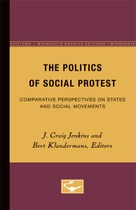 The Politics of Social Protest
Comparative Perspectives on States and Social Movements
J. Craig Jenkins and Bert Klandermans, Editors
1995 Spring
The Politics of Social Protest
Comparative Perspectives on States and Social Movements
J. Craig Jenkins and Bert Klandermans, Editors
1995 Spring
- Bringing together celebrated scholars from diverse traditions and backgrounds, this volume focuses on the reciprocal relationships among social movements, states, and political parties. The essays are organized around three key questions: Why do citizens resort to the often risky and demanding strategy of using disruptive protest when other channels of political intervention appear to be available? What is the relationship between social protest movements and systems of political representation? And what is the impact of the structure and development of the state on social movements themselves? Contributors include Ronald Aminzade, Paul Burstein, Russell J. Dalton, Donatella della Porta, Henry Dietz, Rachel L. Einwohner, Steven E. Finkel, Jerrold D. Green, Jocelyn Hollander, Hanspeter Kriesi, Diarmuid Maguire, Bronislaw Misztal, Edward N. Muller, Michael Nollert, Karl-Dieter Opp, Dieter Rucht, Michael Wallace, and Gadi Wolfsfeld.
-
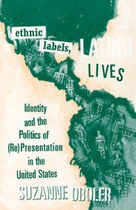 Ethnic Labels, Latino Lives
Identity and the Politics of (Re) Presentation in the United States
Suzanne Oboler
1995 Spring
Ethnic Labels, Latino Lives
Identity and the Politics of (Re) Presentation in the United States
Suzanne Oboler
1995 Spring
- Hispanic or Latino? Mexican American or Chicano? Social labels often take on a life of their own beyond the control of those who coin them or to whom they are applied. In Ethnic Labels, Latino Lives, Suzanne Oboler explores the history and current use of the label “Hispanic,” as she illustrates the complex meanings that ethnicity has acquired in shaping our lives and identities.
-
 The Year of Passages
Réda Bensmaïa
1995 Spring
The Year of Passages
Réda Bensmaïa
1995 Spring
- Straddling the boundary between fiction and nonfiction, this rich and unconventional novel provokes thought at the turn of every page. The tale is narrated by a North African author exiled to the United States because he has been condemned by religious fanatics after the publication of his novel entitled Dead Letters. Bensmaïa's knowledge of the history, the literature, and the philosophical ideas of our times underlies the novel without intruding into it directly.
-
 Minnesota’s St. Croix River Valley and Anoka Sandplain
A Guide to Native Habitats
Daniel S. Wovcha, Barbara C. Delaney and Gerda E. Nordquist
1995 Spring
Minnesota’s St. Croix River Valley and Anoka Sandplain
A Guide to Native Habitats
Daniel S. Wovcha, Barbara C. Delaney and Gerda E. Nordquist
1995 Spring
- Offers a fascinating landscape history of this six county region in east-central Minnesota, including detailed descriptions of the 39 varieties of native habitats which still exist there. The region includes the counties of Anoka, Chisago, Isanti, Ramsey, Sherburne, and Washington. All of the data is summarized and interpreted to provide a convenient guide for anyone interested in the natural history of the region, including landowners seeking more information on a forest or prairie on their land, persons interested in visiting native habitats in the region, government planners and resource managers, and high school biology classes. A set of five companion color wall maps is available separately.
-
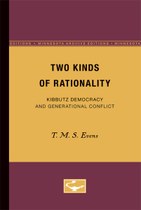 Two Kinds of Rationality
Kibbutz Democracy and Generational Conflict
T.M.S. Evens
1995 Spring
Two Kinds of Rationality
Kibbutz Democracy and Generational Conflict
T.M.S. Evens
1995 Spring
- Beginning with a discussion of mind-body dualism in social anthropology, Evens presents a profound theory of human conduct that deploys notions of hierarchy and practice. He uses the case study of an Israeli kibbutz to address the central anthropological problem of rationality. Of particular interest is Evens's interpretation of the Genesis myth, along with his reading of Rousseau's revision of this myth, as a paradigm of generational conflict and the kibbutz's logic of moral order.
-
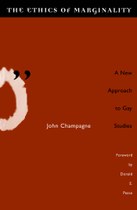 The Ethics of Marginality
A New Approach to Gay Studies
John Champagne
1995 Spring
The Ethics of Marginality
A New Approach to Gay Studies
John Champagne
1995 Spring
- An original and timely critique which moves gay studies beyond both identity politics and the “rights” discourse, as it questions whose interests are served in an uncritical celebration of the Other. Champagne analyzes a number of recent films, including Paris is Burning, Urinal, and Marlon Riggs' 1989 video Tongues Untied, along with gay pornography. He uses the work of such critics as Jacques Derrida, Michel Foucault, and Gayatri Spivak, as he establishes a ground-breaking and controversial new theoretical model for studies of the Other.
-
 Internationalism and Its Betrayal
Micheline R. Ishay
1995 Spring
Internationalism and Its Betrayal
Micheline R. Ishay
1995 Spring
- Although internationalism is typically understood to be diametrically opposed to nationalism, Micheline Ishay argues to the contrary, maintaining that internationalism often incorporates an individualist element that manifests itself as nationalism during critical periods such as war. Internationalism and Its Betrayal explores the tensions and contradictions between ideas of nationalism and internationalism, focusing on the major political thinkers from the early modern period into the nineteenth century.
-
 Professor Wellstone Goes to Washington
The Inside Story of a Grassroots U.S. Senate Campaign
Dennis J. McGrath and Dane Smith
1995 Spring
Professor Wellstone Goes to Washington
The Inside Story of a Grassroots U.S. Senate Campaign
Dennis J. McGrath and Dane Smith
1995 Spring
- This engaging account of Wellstone’s campaign, written by two political reporters, provides a behind-the-scenes look at a memorable chapter in U.S. Senate campaign history, which saw a liberal college professor become the only Senate challenger to unseat an incumbent in 1990.
-
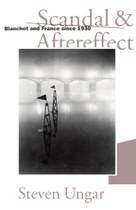 Scandal and Aftereffect
Blanchot and France since 1930
Steven Ungar
1995 Spring
Scandal and Aftereffect
Blanchot and France since 1930
Steven Ungar
1995 Spring
- Why have literary critics, as in the cases of Martin Heidegger and Paul de Man, chosen to ignore or suppress Blanchot's right-wing interwar and wartime writings, focusing instead on his postwar production? Scandal and Aftereffect provides an enlightening and provocative examination of this question, as Steven Ungar looks at 100 articles published under Blanchot's signature between 1932 and 1937 in such right-wing publications as Combat, Le Rempart, and l'Insurgé.
-
 Travelers, Immigrants, Inmates
Essays in Estrangement
Frances Bartkowski
1995 Spring
Travelers, Immigrants, Inmates
Essays in Estrangement
Frances Bartkowski
1995 Spring
- Uses travel writings, U.S. immigrant autobiographies, and concentration camp memoirs to illustrate how tales of dislocation present readers with a picture of the complex issues surrounding mistaken identities. Bartkowski's elegantly written and incisive book stands at the crossroads of contemporary thought in cultural studies and ethnicity, race and gender, nationalism, and the politics and poetics of identity.
-
 Screening the Body
Tracing Medicine’s Visual Culture
Lisa Cartwright
1995 Spring
Screening the Body
Tracing Medicine’s Visual Culture
Lisa Cartwright
1995 Spring
- Traces the fascinating history of scientific film during the late nineteenth and early twentieth centuries and shows that early experiments with cinema are important precedents of contemporary medical techniques such as ultrasound. Lisa Cartwright brings to light eccentric projects in the history of science and medicine, such as Thomas Edison's sensational attempt to image the brain with X rays before a public audience, and the efforts of doctors to use the motion picture camera to capture movements of the body, from the virtually imperceptible flow of blood to epileptic seizures.
-
 Further Selections from the Prison Notebooks
Antonio Gramsci
Derek Boothman, Editor
1995 Spring
Further Selections from the Prison Notebooks
Antonio Gramsci
Derek Boothman, Editor
1995 Spring
- This volume introduces a new and invaluable selection of Gramsci's work. The editor brings together Gramsci's writings on religion, education, science, philosophy, and economic theory.
-
 Queer Noises
Male and Female Homosexuality in Twentieth-Century Music
John Gill
1995 Spring
Queer Noises
Male and Female Homosexuality in Twentieth-Century Music
John Gill
1995 Spring
- This fascinating account of gays and lesbians in the music industry considers the lives of a host of performers-from Benjamin Britten and John Cage to Bessie Smith and Janis Joplin, from Billy Strayhorn and Cecil Taylor to Sun Ra and the Pet Shop Boys. Witty, opinionated, and occasionally outrageous, Gill attempts to end the silence about the contributions of gays and lesbians to twentieth-century music.